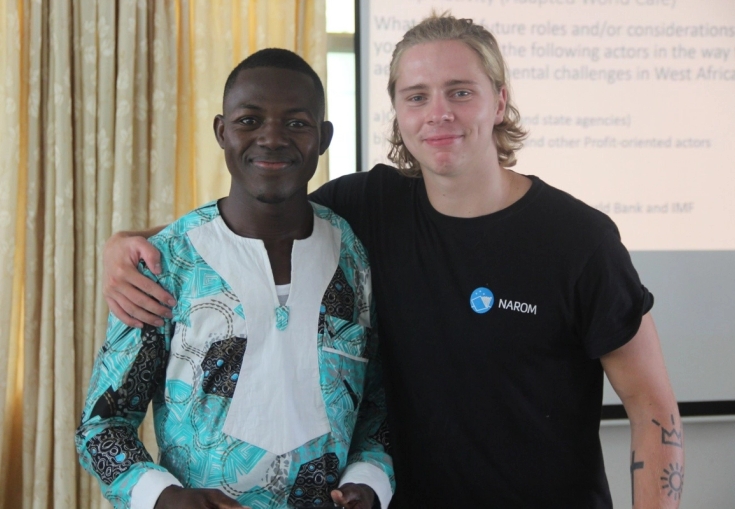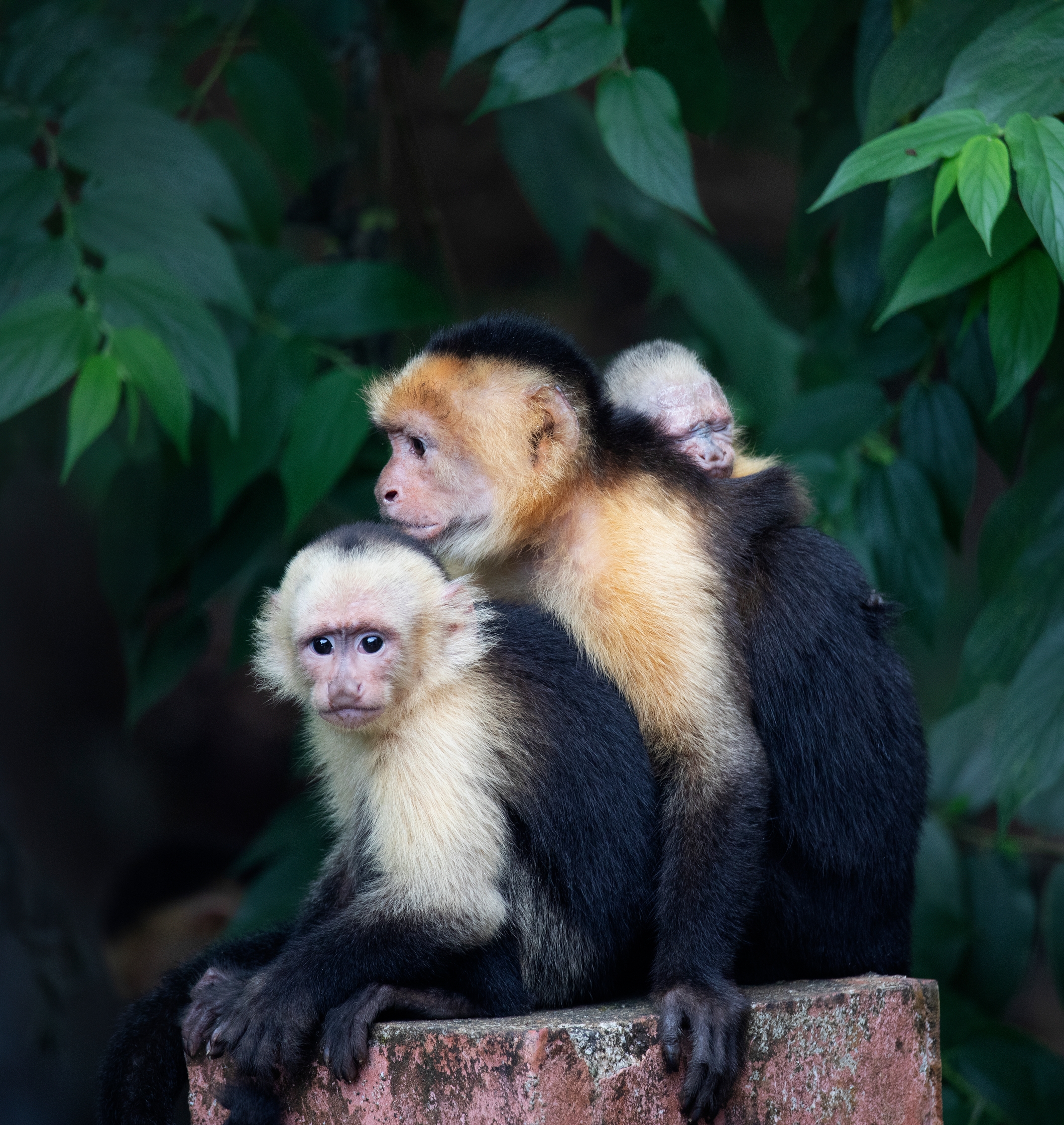
Global Environmental Studies
In collaboration with OsloMet
Forthcoming semesters:
How will climate change affect different parts of the world in different ways? Who is responsible for implementing a green shift – and how will the changes affect local wildlife, or the living conditions of indigenous groups? Can tourism be sustainable? Global environmental studies are about assessing these questions critically, and always with an eye for how policy and theory affect the lives of animals, individuals, and marginalized groups.

Practical details
- Application deadline:
- Rolling admission
- Forthcoming semesters:
- 8 September or 10 February
- Duration:
- 10 weeks in Costa Rica
- Time and date:
- Choose: Autumn or spring
- Programme fee:
- 6300
- ECTS:
- 30 ECTS
- Included:
- Study programme, accommodation, lunch on teaching days
About the programme
The study provides an introduction to environmental and climate issues from a societal perspective, with a particular focus on Central America and Costa Rica.
Throughout the semester, one investigates the causes of and potential solutions to various climate and environmental problems, and you learn about different perspectives on the management of natural resources. Excursions and fieldwork constitute an important part of the study.
If you wish to improve your Spanish skills before the study begins, you can choose to participate in a three-week Spanish course prior to the study.
Learn more about global environmental studies
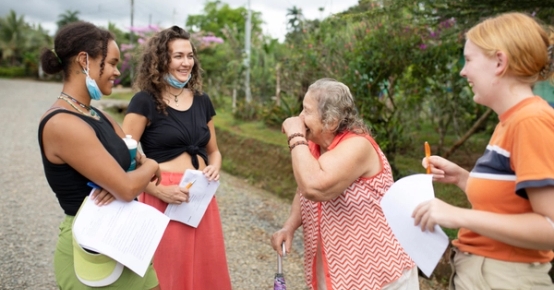
- Costa Rica
- Global Environmental Studies
- Inspiration
What is Global Environmental Studies?
Why choose global environmental studies?
Discover potential solutions to the most pressing challenges of our era
Explore environmental studies in a country known for its vast biological diversity
Develop expertise in a field essential for all businesses
Combine theory and practice through excursions and fieldwork
Semester overview
The programme is divided into three periods.
Global environmental studies
- 1
Self-study
The semester starts with a six-week self-study period. You familiarize yourself with the curriculum, and ultimately submit a short assignment. The goal is for you to come prepared to the teaching periode. You can combine this period with work or travel.
- 2
Teaching period in Quepos and San Isidro
The teaching period is ten weeks long and consists of lectures, seminars, excursions, and fieldwork. Renowned lecturers from around the world teach, and our dedicated seminar leaders organize the seminars. For the first half of the study, you live in Quepos, and for the second half in San Isidro. The final weeks are spent working on a group exam.
- 3
Take-home exam
You will be given an individual take-home exam. You have three weeks to complete it before the submission deadline. Many choose to stay in Costa Rica to write their exam or go backpacking during this period. Just remember to allocate enough time to work consistently on the assignment!
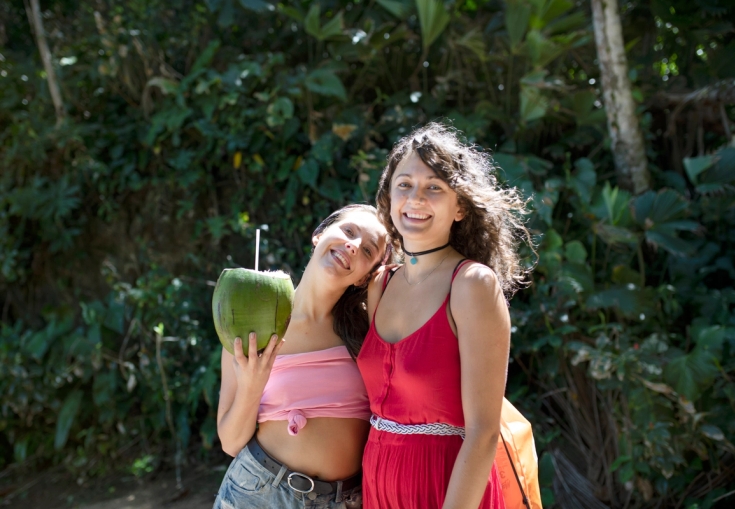
Scholarship opportunities
Are you a Costa Rican national and wish to take part in the Global Environmental Studies programme?
Each semester, we offer a select few local students the opportunity to take part in the course through our scholarship programme.
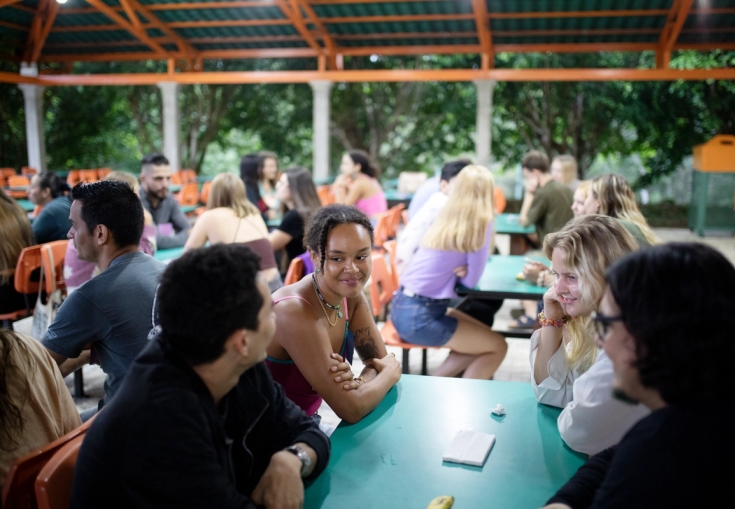
Combine with a Spanish course
Do you want to improve your Spanish skills or learn basic Spanish before your studies?
We offer a three-week language course where the instruction is tailored to your level.
During the course, you will either live in student housing or with a host family.
Feel free to contact us for more information!

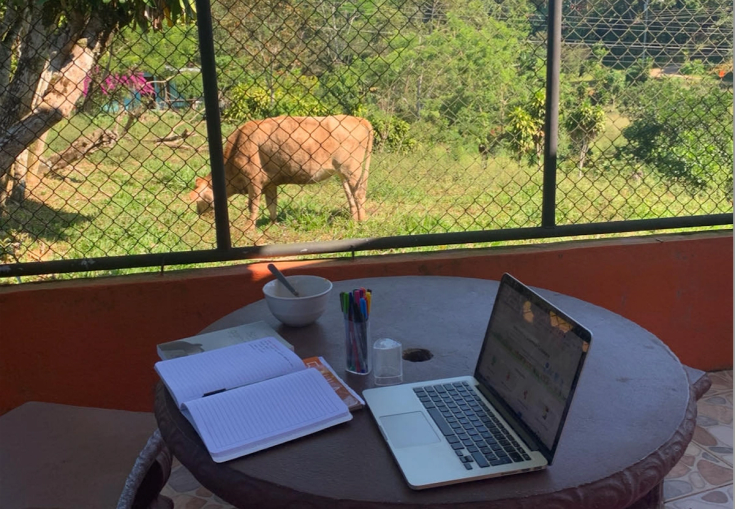
Further studies
Most social science and humanities bachelor's programs in Norway have elective credits. You can apply to have the semester credited towards your bachelor's degree.
Costa Rica has an enormous biological diversity, and large areas of protected nature.
In addition, the country is internationally known for its work with renewable energy, while there is an increasing focus on conflicts of interest between indigenous peoples and developers of energy solutions.
Your experiences from Costa Rica will be very useful if you wish to continue studying environmental studies.

Career opportunities
By studying environmental studies in Costa Rica, you gain international expertise that is sought after in the workforce, for example in tourism, aid, or education.
The study is particularly relevant for work with environment and sustainability within voluntary organizations or the public sector. However, all industries must address sustainability in one way or another.
Regardless of whether you want to work as a teacher, become an economist or engineer, or start your own business in the future, sustainability will be a relevant topic and your expertise can be useful.

University Partner
Meet the staff in Quepos and San Isidro

Tara Ruttenberg
Tara is the seminar leader for the Global Environmental Studies students in Quepos. She is a research consultant and ph.d. in Development Studies (Wageningen University, 2022), with a specialization in political ecology, sustainable tourism, and critical surf tourism studies.

Raquel Bolaños
Raquel Bolaños is the Manager for our programs in Costa Rica, is a San Isidro native with a deep passion for visual arts and water protection. Her Master's degree in Environmental Studies from York University, coupled with experience in experiential learning programs. Raquel is dedicated to supporting students throughout their transformative educational journey.

Andrés Valverde
Andrés is the manager for the students in Quepos. He also works with administrative tasks in the office in San Isidro and collaborates with Raquel when the environmental studies group travels to San Isidro. Andrés is a trained Spanish teacher and grew up in San Isidro, so he knows the area well.
Read more about
- 1
Fill out the application
To apply for the program, fill out the application form. It is completely non-binding.
- 2
Offer of admission
Assuming there are available spots, we will send you an offer for a study place. To secure your spot, you pay a deposit of 250 EUR.
- 3
Start of studies
Before the start of your studies, you will receive information from us about all practical and academic preparations. The remainder of the tuition fee is to be paid two weeks before the start of your studies.



